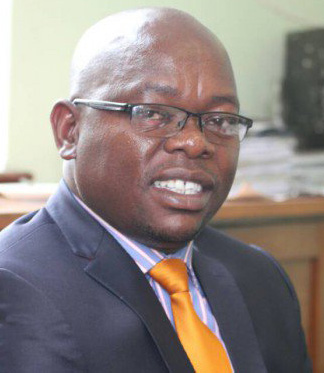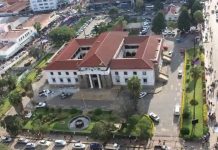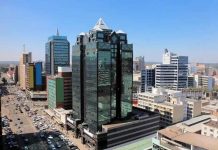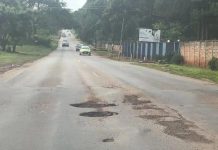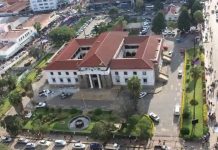THE Harare City Council has threatened to switch off water supplies if no bail-out to procure water treatment chemicals is not found by Tuesday.
In a statement Sunday, council head of communications Michael Chideme said the city was also buying foreign currency on a volatile interbank market using a non-elastic budget.
“Harare City Council has run out of key water treatment chemicals and is at the moment stretching the little available to treat limited supplies of water,” Chideme said.
“If no urgent bailout is given today and Tuesday, management will be forced to shut down Morton Jaffray Water Treatment plant.”
He added: “Council is buying foreign currency on the runaway interbank exchange market against a stagnant and inflexible budget.”
Council’s call for government to declare the water situation in the capital a state of disaster has not been echoed by residents groups including the Community Water Alliance (CWA) which argues such a move will allow other none state actors to help.
WCA programmes manager Hardlife Mudzingwa said the government should declare Harare water a national disaster.
“It is clear that government from national level to the lowest tier has failed to honour its obligations to protect, respect and fulfill the people’s right to water exposing citizens to water borne diseases.
“Declaring a state of disaster in line with Section 27(1) of the Civil Protection Act (Chapter 10:06) is the only viable option that will invite non-state actors to help citizens,” said Mudzingwa.
“It will unlock financial resources and also help treating the crisis with the urgency it deserves.”
On the other hand the Harare Residents Trust (HRT) said council has its priorities skewed.
Precious Shumba, HRT director said the city has continously recruited staff against advice from stakeholders.
“They have been busy recruiting more workers, they already owe huge amounts in salaries.
“The City of Harare has not stopped holding workshops in the resort towns of Kariba, Victoria Falls, Nyanga, Kadoma, Vumba. They do not cut their expenditures on workshops which they hold repeatedly,” Shumba said.
“When it comes to water treatment chemicals, they want to shift blame and cry the loudest about the interbank market rates.”
Shumba added: “The reality of the matter is that there is a figure of US$2.5 million needed every month for water treatment. Unfortunately, they have not broken it down for the ratepayers to understand.
“Reports indicate that there is massive theft of materials and chemicals at the City of Harare, taking advantage of the manual storage system which has allowed for manipulation.”
Last week, the government, through Treasury released $37.4 million and US$2.2 million as a short-term measure to improve water supply and sanitation in the city.

